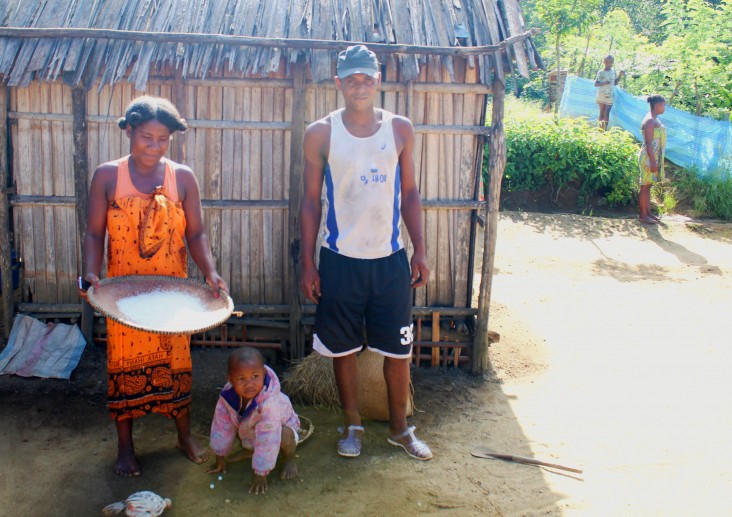Speeches Shim

The women of Andongozabe village in northern Madagascar understand the importance of family planning. They’ve learned the benefits from their resident Community Health Volunteer (CHV), Soanette, who provides information and family planning services to 107 women.
41-year-old Georgine is one of those women who have sought out Soanette’s guidance on family planning. Georgine is a mother of three – two boys and one girl – who are all two years apart in age.
The number of children and the spacing between births have been Georgina’s choice.
On Soanette’s advice, Georgine chose to take Depo-Provera, an injectable contraceptive method. Every three months she takes a new injection to sustain the contraceptive effects. When Georgine wanted to have a baby she simply stopped getting the injections and that way she was able to have children when it was the right time for her and her family.
Too often women discontinue their use of contraceptives, but Georgine has found that consistently returning to contraceptive use after the birth of a child has given her control over the direction of her life and brough many advantages for her family.
“We decided to continue family planning because our family has gained multiple benefits from it, especially economic ones,” says Georgine. “By spacing out births, I have been able to contribute to our household income and save money to cope with the difficult days and social obligations”
“We didn’t have to spend much on child health care, even in their early ages. I carefully followed the health advice of Soanette who is a very competent CHV, ably counseling mothers and monitoring the children’s health.”
USAID’s community-based health program, Mahefa Miaraka, supports nearly 10,000 CHVs who educate their communities on reproductive health and provide them with family planning services.
Soanette and her fellow CHVs are trained in the use of many contraceptive methods, including cycle beads, condoms, contraceptive pills, LAM (Lactational amenorrhea—a contraceptive method that works through exclusive breastfeeding during the first six months of the baby’s life), and Depo-Provera and Sayana Press injections.
During monthly meetings at the CSB that are supported by Mahefa Miaraka, CHVs receive technical updates, review and submit monthly activity reports, and ensure they have an adequate supply of family planning products.
Soanette says that there are a number of elements that go into a successful family planning program that meets the needs of her community. “These include the availability of contraceptive products, comprehensive information about the choice of contraceptive methods that are available, sexual education to complement family planning services, ongoing counseling through home visits, and the partner’s support in the choice of family planning,” she says.
Most families in Andongozabe village are now aware of the importance of delaying, spacing out births, and limiting the overall number of pregnancies to reduce family size and economic difficulties. Many women are convinced of the long-term benefits of family planning. This is a significant achievement in a village where 60% of residents are between the ages of 14 and 25.

Comment
Make a general inquiry or suggest an improvement.